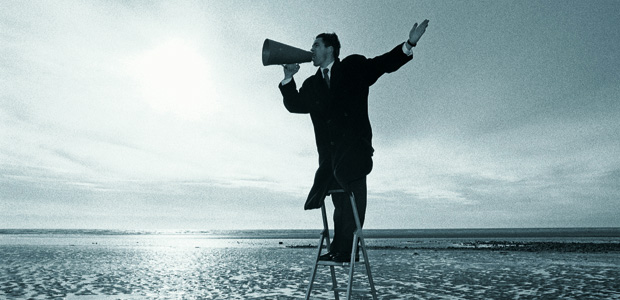
Source: Getty
When it comes to league tables, perhaps subjective opinions on university reputation are the only measures that matter, muses Chris Hackley.
University league tables are conscientiously compiled, serve calls for greater transparency and accountability, but above all make great news stories. The latest rankings are pored over and shared on social media by applicants, parents, journalists, press officers, politicians, funding bodies, vice-chancellors and (in spite of our misgivings) academics.
University rankings tap into a huge appetite for information about these most charismatic of organisations.
Back in the days when universities earned their reputations before they “managed” them, advertising man David Ogilvy coined the idea of the brand “personality”. Universities have it in spades. Not only that, they are packed with celebrity spokespeople such as business gurus, scientific geniuses, literary giants and political and policy commentators. As subjects for reporters (or marketing consultants), universities are pure gold.
Today, all media are digitally connected, so the vague notion that X might be a good university can rapidly lead to an application form via a Google search, a perusal of some news stories or branded “native” advertising, a Facebook conversation or a university website, all in just a click or two.
As in commercial marketing, there are no universal principles guiding the management of this idiosyncratic process. Practical experience, creative instinct and competitive neurosis have bigger roles in branding strategies than our great organisations will admit. But in the tautological language of marketing, brands are what people say about them and must be managed because everything important has to be managed.
The league table is hardly appropriate for comparing aggregated university datasets of incomparable things such as grant funding, research outputs, teaching quality surveys and the rest, but it is a journalistic trope that turns the driest of detail into a great headline. It even gives the most obscure and fusty institution a coveted media presence. Regardless of rank, merely appearing in the same list as the greatest seats of learning in the world flatters most universities by association. Never mind the text: marketing is really about context.
Of all the sliced-and-diced datasets that can be contrived into ordinal form, the reputation survey is perhaps the most problematic. Surveys are prone to selection, question and non-response bias, however rigorously they are compiled (see Methodology).
On the other hand, perhaps a survey based on nothing but subjective opinion of university reputation is the only measure that matters. A university’s reputation is not only its most important asset it is also a measure of everything the institution has ever done. What are people saying about us? We can’t help but be curious.
The biggest part of university marketing is the routine work of providing information for thousands of applicants. Some considerable time is probably also spent responding to tiresome data requests from the rankers. But no one can tell which aspect of marketing is decisive in recruiting a star academic or a top student. Most of my first-year tutees tell me they signed up not because of brand salience, league tables or website usability, but because they really enjoyed the talk my colleague Derrick gave them on open day. The human touch still has its place.
At the more flamboyant end of university marketing there are implausibly expensive rebrands, slick visual identities and a bit of Barnum-esque ballyhoo, like surreptitious edits made to Wikipedia entries pertaining to the university, and fatuous website copy about being “one of the leading” this or “top of” that.
For all the putative marketisation of the sector, universities have hardly begun to understand the “-ing” of the market. There is much more to come. I don’t think we’ll see “Coronation Street – brought to you by Leeds Beckett University”; Newcastle Wonga University; or Grand Theft Oxbridge, the computer game in which dons compete to destroy each other’s reputation and steal the coveted “Chair”. But I’ve been wrong before.
Chris Hackley
Professor of marketing, Royal Holloway, University of London
Register to continue
Why register?
- Registration is free and only takes a moment
- Once registered, you can read 3 articles a month
- Sign up for our newsletter
Subscribe
Or subscribe for unlimited access to:
- Unlimited access to news, views, insights & reviews
- Digital editions
- Digital access to THE’s university and college rankings analysis
Already registered or a current subscriber? Login